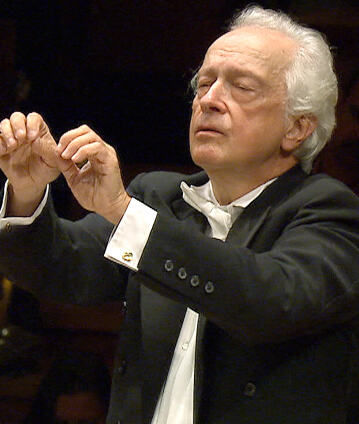Antoni Wit conducts Penderecki’s “St Luke Passion”

More than almost any other composer of the second half of the 20th century, Krzysztof Penderecki represents the fusion of modernism and expressiveness. A key work in this sense is his St Luke Passion, which contributed significantly to Penderecki’s fame and which is conducted here by Antoni Wit, a student of the composer himself.
Success can be dangerous – at least for “new” music. Krzysztof Penderecki, for example, came under fire because his works, more than those of most other contemporary composers, succeeded in finding a niche in international concert programmes. Like his Polish colleague Witold Lutosławski, the quest for an emotionally expressive style was and remains one of his central concerns: “As a composer”, he said in a 1987 Spiegel interview, “I reject the constantly increasing complexity of music.”
As a result, Penderecki, born in Dębica in 1933, furnished his frequently apocalyptic musical visions with the timelessness of tonal contexts. The most prominent example of this stylistic phase is his St Luke Passion (“Passio et mors Domini Nostri Jesu Christi secundum Lucam”), premiered on 30 March 1966 in Münster Cathedral, whose immense success brought genuine popularity to the then 32-year-old composer.
Antoni Wit, who along with his training as a conductor at one time also studied composition with Penderecki, is regarded as one of the leading authorities on his former teacher’s music. In the Philharmonie, together with an ensemble of internationally renowned soloists, he presents Penderecki’s deeply moving work, which concludes with an overwhelming choral build-up in radiant E major to express its message of “hope” and “redemption”.
© 2013 Berlin Phil Media GmbH
Related interviews
Artists
Our recommendations
- A Russian evening with Gustavo Dudamel and Viktoria Mullova
- Ravel’s Piano Concerto with Hélène Grimaud and Tugan Sokhiev
- Europakonzert from Prague with Sir Simon Rattle and Magdalena Kožená
- Sing along and have fun!
- Kirill Petrenko conducts Tchaikovsky and Rachmaninov
- Riccardo Chailly conducts Bruckner’s Sixth Symphony